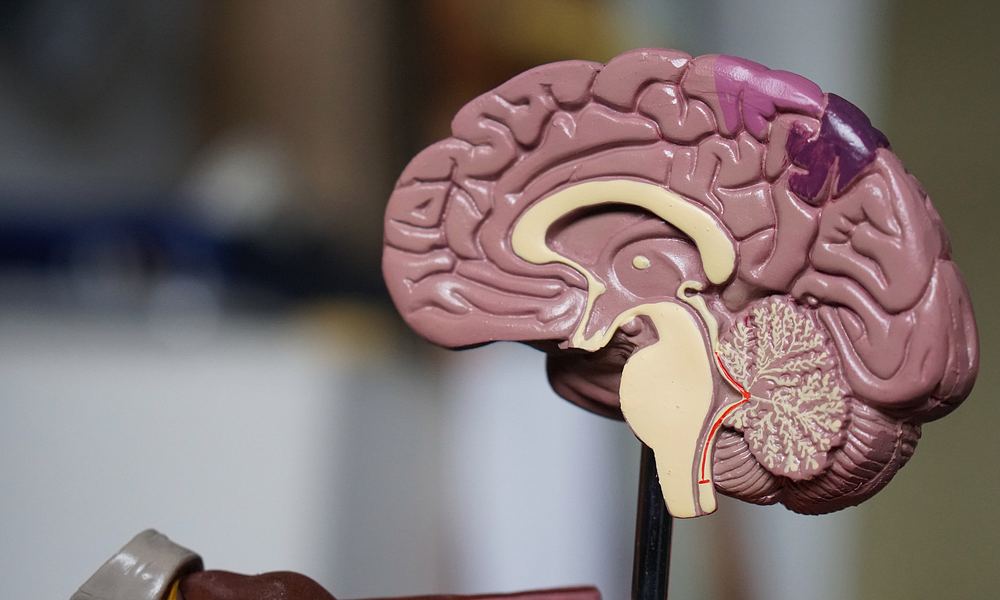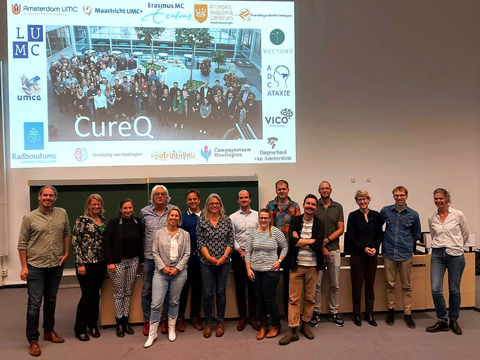CureQ
- Research project

Huntington’s disease is a relatively unknown genetic disease with a big impact on those involved. The disease cannot be cured or slowed down yet. The disease is caused by a repetition of nucleotide CAG on a mutated gene. This mutated gene leads to a mutation of the protein which destroys the function of neurons, causing them to die off eventually. The Research Group behind the CureQ Project will collect more insights into the origin and treatment of this disease via data science.
This project has two aspects. The first is researching whether a new medicine can be developed that stimulates the breakdown of the mutated proteins. The second aspect concerns developing a model that gives more insight into the prognosis of the disease for individual patients. Together with the professor Data Science for Life Science & Health, Wynand Alkema, a plan for data stewardship of patient data (FAIR data management) will be set up by Tsjerk Wassenaar.
As neurodegeneration is caused by mutated proteins, this study will also focus on the breakdown of proteins. Unfortunately, such studies are very expensive as well as invasive, due to the fact that they also attack the proteins that are not mutated. An alternative would be to focus on the mechanism that controls the quality of these proteins, so to speak. This treatment may also be used for other diseases that are caused by mutated proteins.

Furthermore, a cell landscape will be created. This model will be able to determine the course of the disease per individual more accurately. Currently the diagnosis is usually given once a patient already has symptoms of the disease, which is usually too late for starting the treatment. If a diagnosis can be established sooner, proper treatment can be given which will alleviate or possibly even stop the symptoms. However, more knowledge is needed for this. An advantage of the cell landscape is that the cells of patients can be used for developing a treatment. Not only does this result in better treatment, it is also less invasive than the current method of animal testing or artificial models based on tumour cells.
Ethics play an important role in this research. Huntington’s disease is hereditary: there is a 50% chance that the parent passes the mutated gene on to their child. As this is a dominant gene, those who have the gene will eventually get the disease. On the one hand, it’s a good thing to enhance the knowledge of this disease, seeing as it enables better treatment opportunities for patients which can start sooner to alleviate symptoms. On the other hand, patients and their offspring are confronted with the disease earlier, which also means they will need to think of their future with this disease earlier. These ethical issues will be taken into account.
The impact Huntington’s disease has on patients, their family and society as a whole is big. The disease causes motoric, cognitive and behavioural problems that worsen over time. As there is no treatment to prevent, stop or slow down the disease, it eventually causes mortality. At the same time the disease is usually discovered between the age range of 30-50 years: a period when most people are starting a family. This burdens not only the patient but also their family members. If more is known about this disease, then patients and their loved ones can seek professional help on time. This study helps to facilitate this.
The impact of this disease on society is also great. Due to the lack of treatment and the rapid pace in which the disease progresses, there is a huge loss in healthy and working years. On average the disease costs 20,000 euros per patient annually and about 100,000 euros in the final stage of the disease. In addition to the high costs, most studies are tested on animals. The model deriving from this research will reduce the need to test on animals.

Lector Data Science for Life Sciences & Health

Do you have questions regarding data stewardship or FAIR data with respect to this research? Please contact Wynand Alkema.
Wynand AlkemaHow satisfied are you with the information on this page?